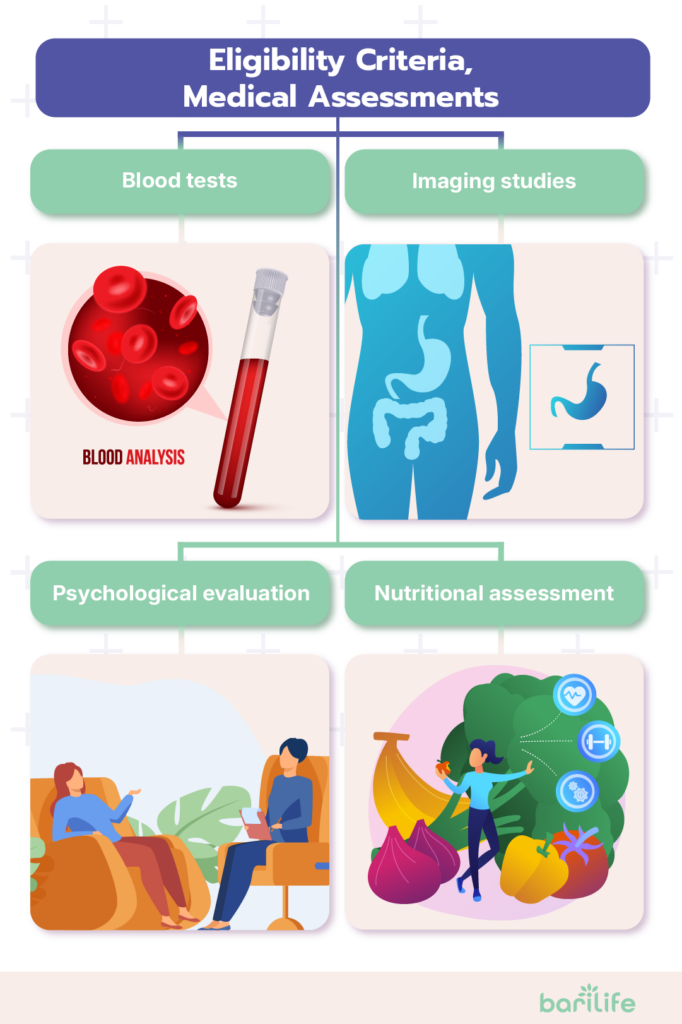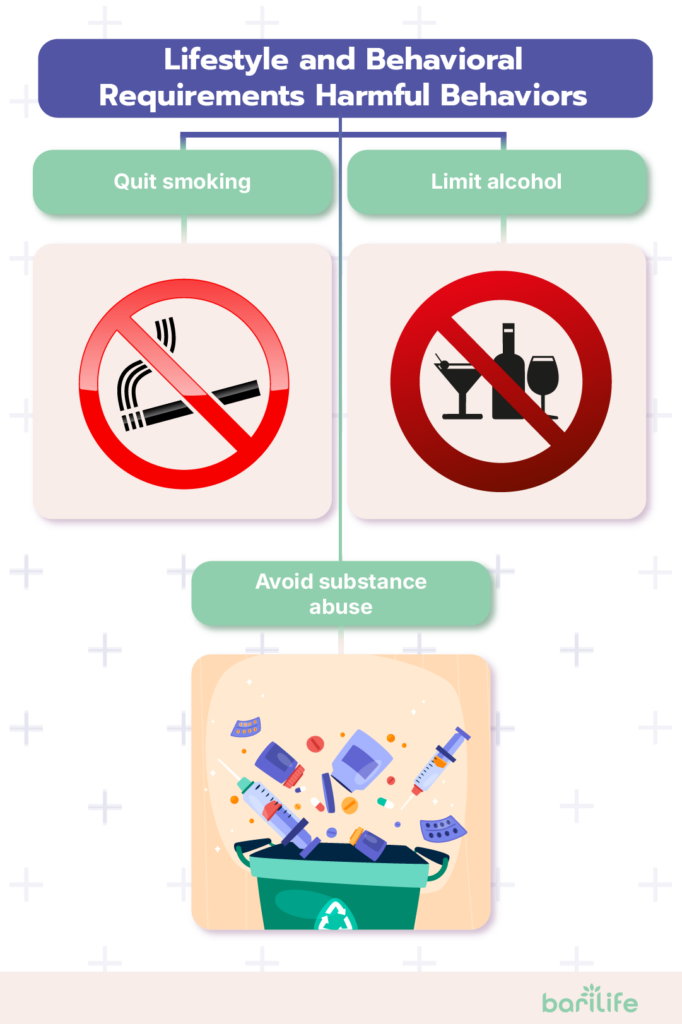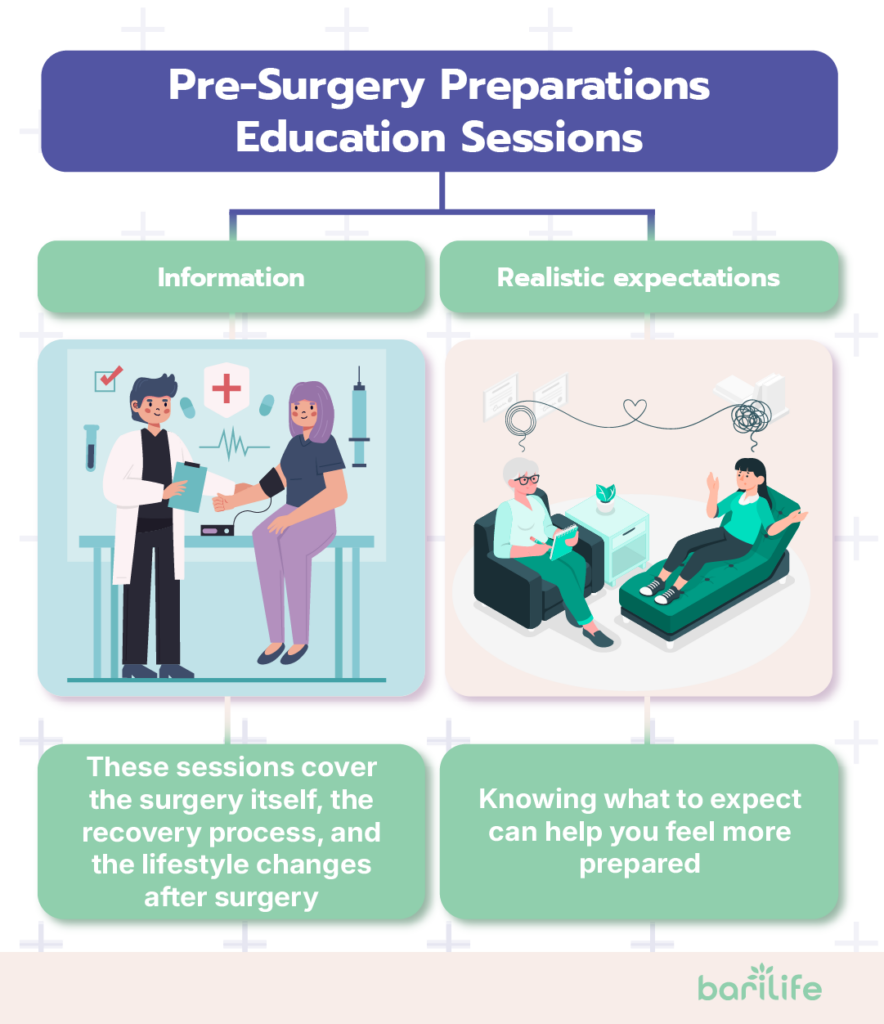Key Takeaways
- Bariatric surgery is a life-changing procedure designed for individuals with severe obesity who have struggled to lose weight through traditional methods.
- Eligibility is determined by factors such as BMI for bariatric surgery, obesity-related health conditions, and readiness to make long-term lifestyle changes.
- Bari Life supplements are specifically designed to meet the unique nutritional needs after bariatric surgery, ensuring you get the essential bariatric vitamins and minerals needed for long-term health.
Thinking about bariatric surgery for weight loss and health? It’s a big decision. The first step is to see if you qualify.
Am I a candidate for bariatric surgery? This is a common question for individuals considering weight loss surgery. Bariatric surgery is for people who are severely overweight or obese and have not successfully kept weight off using other methods. When determining your eligibility, healthcare providers assess your weight, overall health, and readiness to make long-term lifestyle changes.
In this guide, we explain bariatric surgery requirements so you can determine whether it is right for you.
Table of Contents
What Is Bariatric Surgery?

Bariatric surgery is a medical procedure that helps people with obesity lose significant weight.
By making changes to the digestive system, these surgeries reduce weight and also help with obesity-related health conditions like type 2 diabetes, sleep apnea, and high blood pressure.
But before considering this life-changing procedure, it’s important to understand its purpose, types, effectiveness, and risks.
Purpose and Types
Bariatric surgery works by changing how the body processes food. Depending on the procedure, it can reduce the stomach size or change how the body absorbs nutrients.
Here are the most common:
- Gastric bypass: This surgery creates a small pouch in the stomach and reroutes the digestive system, bypassing part of the small intestine. It limits food intake and reduces calorie absorption.
- Sleeve gastrectomy: In this procedure, the surgeon removes most of the stomach, leaving a smaller, tube-shaped stomach. It reduces hunger by reducing the production of the hunger hormone ghrelin.
- Laparoscopic adjustable gastric banding: An adjustable band is placed around the top of the stomach, creating a small pouch to limit food intake. After this procedure, you feel full after eating small amounts.
Many people wonder, how quickly can I get bariatric surgery? The timeline depends on insurance approval, pre-surgery requirements, and medical assessments. Some individuals may qualify for how to get bariatric surgery fast programs that streamline the process.
After surgery, nutritional intake is a primary concern. Many patients rely on bariatric multivitamin with iron and liquid bariatric vitamin supplements to meet their daily nutrient needs.
Effectiveness
While results vary from person to person, studies suggest that bariatric surgery helps reduce the risks of several obesity-related conditions more than non-surgical methods.
According to The American Society for Metabolic and Bariatric Surgery, people who undergo bariatric surgery maintain their weight loss far longer than people who lose weight through lifestyle changes or medications.
However, it’s important to note that results vary from person to person. Long-term success depends on dietary adherence, including consuming bariatric protein shakes and bariatric snacks to support muscle maintenance and energy levels.
Risks and Considerations
While bariatric surgery can be life-changing, there are risks to consider.
- Nutritional deficiencies: Changes to the digestive system may reduce the absorption of nutrients, requiring lifelong vitamin and mineral supplements like bariatric vitamins chewable and bariatric calcium chews to prevent deficiencies.
- Surgical risks: Like any surgery, bariatric surgery has risks of infection, bleeding, or complications from anesthesia.

- Lifelong lifestyle changes: Success depends on your ability to make dietary and behavioral changes after surgery. These changes include eating a nutrient-dense diet, exercising regularly, and attending follow-up appointments.
Eligibility Criteria
Bariatric surgery isn’t a one-size-fits-all solution. Health providers use specific criteria to determine who qualifies.
Here’s what you need to know about the main eligibility factors:
Body Mass Index
Your body mass index (BMI) is one of the main determinants of your eligibility for bariatric surgery.
Generally, you need to have:
- A BMI of 40 or more
- A BMI over 35 or more with obesity-related health conditions such as type 2 diabetes, high blood pressure, or sleep apnea
- A BMI of 30 or more with difficult-to-control type 2 diabetes
Age Considerations
Although it’s most common for adults to have bariatric surgery, it’s also an option for teenagers in some instances.
Teenagers with severe obesity who have serious health problems may qualify, but they must meet strict guidelines and have the support of their family and healthcare team.
According to The National Institutes of Health, teens who had bariatric surgery had fewer obesity-related health conditions and maintained their weight loss ten years after surgery.
Previous Weight Loss Attempts
Before bariatric surgery, some insurance companies or bariatric surgeons require their candidates to participate in a supervised dietary program or a short preoperative period of a low-calorie diet.
Medical Assessments
Before bariatric surgery, you’ll need to have a series of medical assessments to ensure you’re a good candidate and are prepared for the changes that come with the surgery.
These assessments may include:
- Blood tests: These check for conditions like diabetes, thyroid problems, or deficiencies in vitamins and minerals that need correcting before surgery.
- Imaging studies: Ultrasounds or X-rays check for gallstones or other conditions that could impact the surgery.

- Psychological evaluation: This helps identify your strengths, challenges, and reasons for wanting bariatric surgery. Problems like stress, anxiety, depression, or not being ready for what’s needed after surgery could make your recovery challenging.
- Nutritional assessment: Your eating habits and nutritional status are crucial to the success of bariatric surgery. Making sure you’re ready to follow the dietary requirements after surgery, such as smaller portion sizes and specific nutrient intake, is essential..
A major concern for many patients is: what can disqualify you from bariatric surgery? Factors like untreated mental health disorders, ongoing substance abuse, or failure to follow pre-surgery guidelines can impact eligibility.
Another important question is, can you have bariatric surgery if you have H pylori? Since H. pylori infections can lead to stomach ulcers, they must be treated before surgery to reduce complications.
Lifestyle and Behavioral Requirements
Bariatric surgery is not just a surgical procedure – it’s a lifelong journey that requires long-term commitment and adjustment.
Before having bariatric surgery, you must understand the necessary lifestyle changes before committing.
Commitment to Change
Bariatric surgery success relies heavily on your commitment to making permanent lifestyle changes. This includes:
- Dietary changes: You’ll need to eat a nutrient-rich, portion-controlled diet designed for your new body.
- Exercise: You’ll need to exercise regularly to maintain weight loss and overall health.
- Medical adherence: Following your doctor’s instructions, including follow-up appointments and taking supplements, will ensure long-term health and wellness.
Your commitment to these changes will get you the best results.
Support Systems
A good support system can make all the difference during your bariatric surgery journey. Having people to turn to – whether family, friends or support groups – can provide:
- Emotional support: Encouragement during tough times.
- Practical help: Help with daily tasks as you recover.
- Common ground: Talking to others who have had the same surgery can be greatly helpful.
Having a support system will help you stay on course and not feel so alone.
Harmful Behaviors
Some behaviors can get in the way of your recovery and long-term health after surgery. To get the best results be sure to:
- Quit smoking: Smoking increases the risk of complications and delays healing after surgery.
- Limit alcohol: Alcohol has a stronger effect after bariatric surgery and can hinder weight loss.

- Avoid substance abuse: Abusing substances can be very dangerous and impact your recovery.
By avoiding these harmful behaviors, you improve your health and set yourself up for success in your weight loss journey.
Pre-Surgery Preparations
Preparing for bariatric surgery involves more than just scheduling the surgery—it’s about optimizing your health and making recovery smoother. These preparations are key to reducing risks and setting you up for long-term success.
Medical Optimization
Before surgery, it’s important to manage any existing health condition or illness to reduce complications. Some conditions that may need attention include:
- Diabetes: Controlling blood sugar levels will help with healing and reduce surgical risks.
- Hypertension: Getting your blood pressure under control helps reduce the risk of complications.
- Sleep apnea: Using your prescribed treatments, such as a CPAP machine, reduces risks during and after surgery.
Your healthcare team will help you with these to get you in the best shape possible for the surgery.
Pre-op Diet
The pre-op diet is high-protein and low-calorie, and may require limiting sugar and fat. Your doctor or dietitian will advise you on what to eat.
A pre-op diet is part of the preparation process. The diet aims to reduce the size of the liver, making the surgery easier and safer for the surgeon.
It also helps you get used to the smaller portions and dietary changes after surgery.
Education Sessions
Knowing what to expect before, during, and after surgery is crucial for a good outcome. Pre-op education sessions are for:
- Information: These sessions cover the surgery itself, the recovery process, and the lifestyle changes after surgery.
- Realistic expectations: Knowing what to expect can help you feel more prepared.
- Confidence: The information will empower you to make informed decisions and feel ready for the journey.
These education sessions will get you mentally and emotionally ready to take the steps toward a healthier life.

Is Bariatric Surgery for You?
Bariatric surgery can be a game changer for people with severe obesity, but it’s not a decision to take lightly. Meeting the criteria, committing to lifestyle changes, and preparing physically and mentally are all key steps in this journey.
By understanding the requirements and working with your healthcare team, you can determine if bariatric surgery is the right choice for you.
How Bari Life Can Help
Preparing for bariatric surgery requires careful attention to your nutritional health, and Bari Life is here to support you every step of the way.
Our supplements are specifically designed to address the common vitamin and mineral deficiencies that can occur both before and after surgery, ensuring you meet essential nutritional requirements for a successful procedure and long-term wellness.
With easy-to-absorb formulations and complete nutritional profiles, Bari Life makes it simple to stay on track with your bariatric vitamin regimen.
Trust Bari Life to help you build a strong foundation for your weight loss journey—because your health deserves the best.
Conclusion
Bariatric surgery is a life-changing option for those struggling with severe obesity, but it requires meeting eligibility criteria and committing to long-term lifestyle changes. Success depends on proper nutrition, regular exercise, and medical adherence. If you’re considering surgery, consult a healthcare provider to determine if it’s the right choice for you.
If you want to learn more, why not check out these articles below:
- When is Bariatric Surgery Recommended?
- Is Bariatric Surgery Right For Me?
- How To Pass a Bariatric Psych Evaluation?
- What is a Bariatric Patient?
Resources
Types of Weight Loss Surgery. (2020). National Institute of Diabetes and Digestive and Kidney Diseases.
Weight loss surgery has lasting benefits in teens. (2024). National Institutes of Health.



What are your tips and tricks to post-bariatric success?